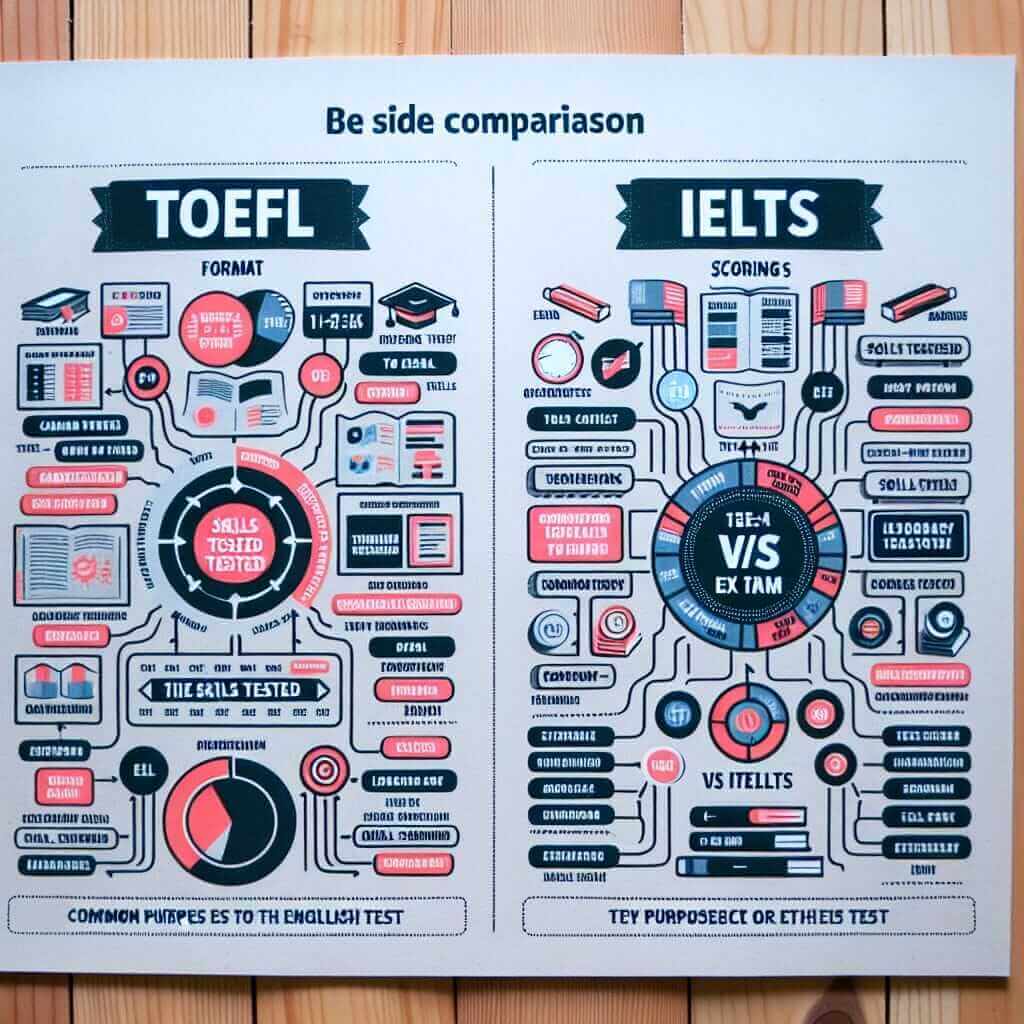The age-old question for English language learners around the world: “Which exam is harder: TOEFL or IELTS?” As an IELTS instructor with over 20 years of experience, I’m here to delve into this debate. While there’s no one-size-fits-all answer, understanding the nuances of each test can help you determine which one might be more challenging for you.
Understanding the Exams
TOEFL (Test of English as a Foreign Language)
The TOEFL iBT (internet-based test) is widely recognized by over 11,000 institutions in more than 150 countries, primarily in North America. It assesses your English proficiency through four sections: reading, listening, speaking, and writing, all focused on academic English.
IELTS (International English Language Testing System)
The IELTS is accepted by over 10,000 organizations globally, including universities, employers, and immigration agencies, mainly in the UK, Australia, and Canada. It comes in two formats: Academic and General Training. Both formats test the same four skills as TOEFL, but the content and tasks differ depending on your purpose (e.g., higher education or migration).

Comparing the Challenges
1. Format and Content:
- TOEFL: The TOEFL is entirely computer-based, which can be challenging for some test-takers who prefer pen-and-paper exams. It predominantly uses multiple-choice questions, often with lengthy reading passages and complex vocabulary.
- IELTS: The IELTS offers both paper-based and computer-delivered options, providing flexibility. It includes a wider range of question types, including multiple choice, short answer, sentence completion, and diagram labeling. The speaking section involves a face-to-face interview with an examiner.
2. Speaking Assessment:
- TOEFL: You speak into a microphone, and your responses are recorded and evaluated later. This format can be intimidating for those who are not accustomed to speaking to a machine.
- IELTS: The face-to-face interview in IELTS allows for more natural interaction and allows the examiner to assess your fluency, pronunciation, and coherence in real-time.
3. Writing Tasks:
- TOEFL: Requires typing your essays on a computer, which might be challenging for individuals with slower typing speeds.
- IELTS: Offers the choice of handwriting or typing your essays (depending on the test format chosen). The tasks often involve analyzing data, presenting arguments, and writing letters.
Which is “Harder”?
The perceived difficulty depends on your strengths and weaknesses.
- Stronger in American English and computer-based tests? TOEFL might feel more manageable.
- Prefer face-to-face interaction and diverse question types? IELTS could be a better fit.
Tips for Success
Regardless of the exam you choose, thorough preparation is key:
- Familiarize yourself with the test format and question types.
- Practice regularly and simulate test conditions.
- Focus on improving your overall English proficiency, not just test-taking strategies.
- Seek guidance from experienced IELTS/TOEFL instructors for personalized feedback.
Conclusion
Ultimately, the “harder” exam is subjective. By understanding the differences between TOEFL and IELTS, honestly assessing your strengths and weaknesses, and committing to dedicated preparation, you can approach either exam with confidence.